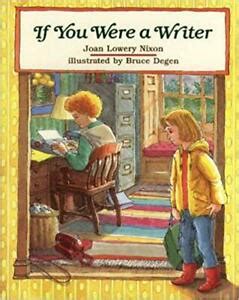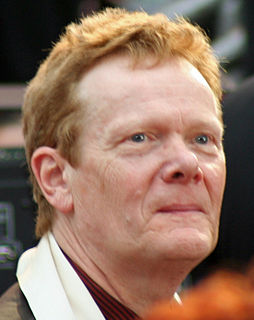A Quote by Joan Lowery Nixon
Each of us from the seance stood alone. Like so many pillars of salt, we had tried to look back and failed. And in the eyes of the others who shared the pale, flat sky with us, there was sometimes suspicion, sometimes a little fear.
Related Quotes
Little by little, in telling Sam all these details, I got to see the bigger point of baseball, that it can give us back ourselves. We’re a crowd animal, a highly gregarious, communicative species, but the culture and the age and all the fear that fills our days have put almost everyone into little boxes, each of us all alone. But baseball, if we love it, gives us back our place in the crowd. It restores us.
To create anything — whether a short story or a magazine profile or a film or a sitcom — is to believe, if only momentarily, you are capable of magic. These essays are about that magic — which is sometimes perilous, sometimes infectious, sometimes fragile, sometimes failed, sometimes infuriating, sometimes triumphant, and sometimes tragic. I went up there. I wrote. I tried to see.
Sometimes people hurt us unintentionally. We may view that they've hurt us intentionally and want revenge. But sometimes when we really look back again, we can see that they weren't intentional in trying to hurt us. That's when we need to confess our judgment of them and forgive them for their unintentional hurts committed against us.
We had no churches, no religious organizations, no sabbath day, no holidays, and yet we worshiped. Sometimes the whole tribe would assemble to sing and pray; sometimes a smaller number, perhaps only two or three. The songs had a few words, but were not formal. The singer would occasionally put in such words as he wished instead of the usual tone sound. Sometimes we prayed in silence; sometimes each one prayed aloud; sometimes an aged person prayed for all of us. At other times one would rise and speak to us of our duties to each other and to Usen. Our services were short.
It seems to me that we can’t explain all the truly awful things in the world like war and murder and brain tumors, and we can’t fix these things, so we look at the frightening things that are closer to us and we magnify them until they burst open. Inside is something that we can manage, something that isn’t as awful as it had a first seemed. It is a relief to discover that although there might be axe murderers and kidnappers in the world, most people seem a lot like us: sometimes afraid and sometimes brave, sometimes cruel and sometimes kind.
Dominator culture has tried to keep us all afraid, to make us choose safety instead of risk, sameness instead of diversity. Moving through that fear, finding out what connects us, revelling in our differences; this is the process that brings us closer, that gives us a world of shared values, of meaningful community.
Most of the scientists I have known well have felt - just as deeply as the non-scientists I have known well - that the individual condition of each is tragic. Each of us is alone: sometimes we escape from solitariness, through love or affection or perhaps creative moments, but those triumphs of life are pools of light we make for ourselves while the edge of the road is black: each of us dies alone.
Human beings are complicated and flawed and unique, but we all have a story to tell. Gone are the days where our lead characters can only look like somebody else. Heroes look like all of us. We see ourselves in each others' stories. We see who we are. We see who we want to be. Sometimes we see who we don't want to be. And through that we have a greater understanding of ourselves and acceptance of each other.
When we seek daily spiritual guidance, we are guided toward the next step forward for our art. Sometimes the step is very small. Sometimes the step is, "Wait. Not now." Sometimes the step is, "Work on something else for a while." When we are open to Divine Guidance, we will receive it. It will come to us as the hunch, the inkling, the itch. It will come to us as timely conversations with others. It will come to us in many ways--but it will come.

































